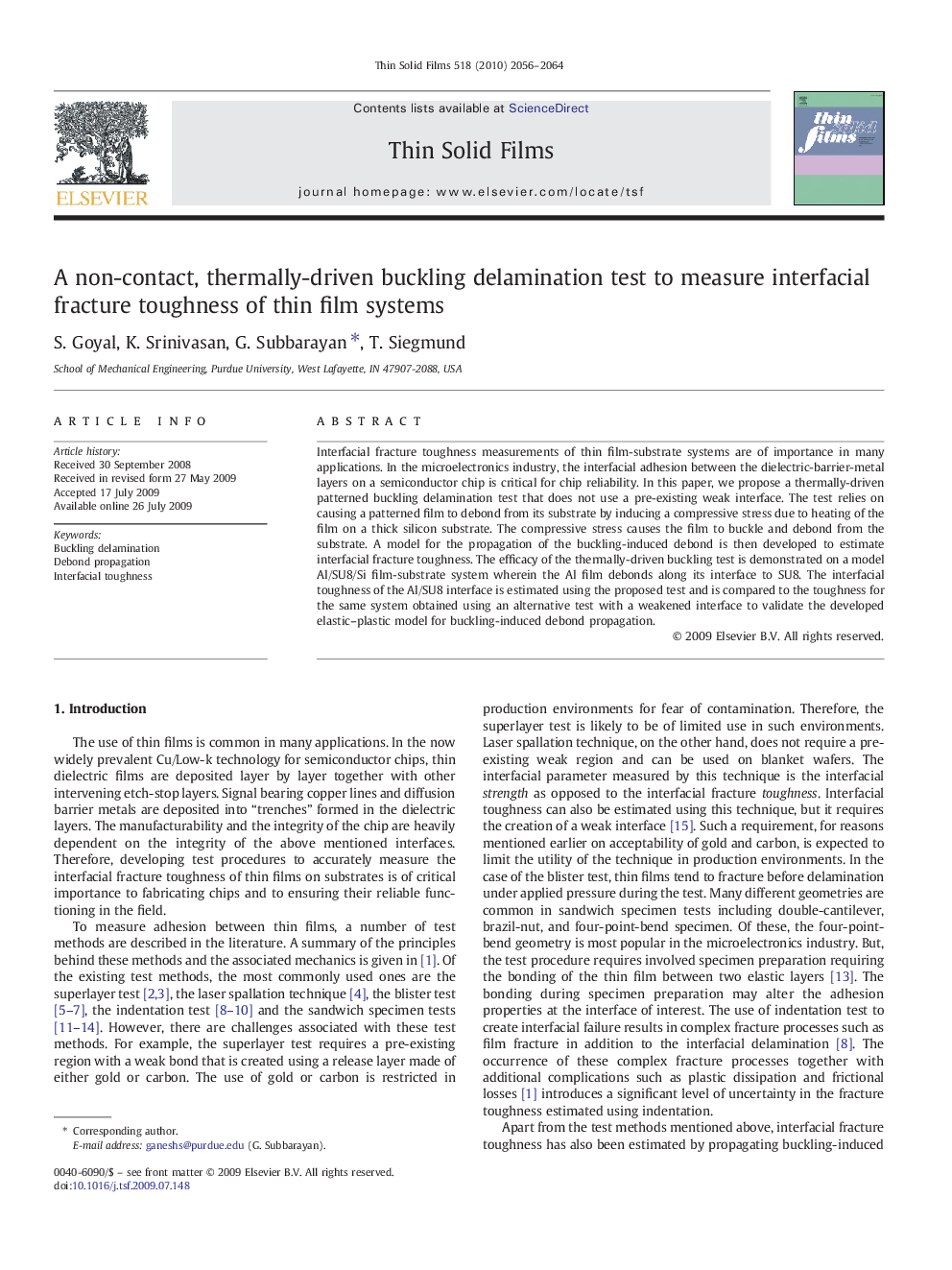| Article ID | Journal | Published Year | Pages | File Type |
|---|---|---|---|---|
| 1671788 | Thin Solid Films | 2010 | 9 Pages |
Interfacial fracture toughness measurements of thin film-substrate systems are of importance in many applications. In the microelectronics industry, the interfacial adhesion between the dielectric-barrier-metal layers on a semiconductor chip is critical for chip reliability. In this paper, we propose a thermally-driven patterned buckling delamination test that does not use a pre-existing weak interface. The test relies on causing a patterned film to debond from its substrate by inducing a compressive stress due to heating of the film on a thick silicon substrate. The compressive stress causes the film to buckle and debond from the substrate. A model for the propagation of the buckling-induced debond is then developed to estimate interfacial fracture toughness. The efficacy of the thermally-driven buckling test is demonstrated on a model Al/SU8/Si film-substrate system wherein the Al film debonds along its interface to SU8. The interfacial toughness of the Al/SU8 interface is estimated using the proposed test and is compared to the toughness for the same system obtained using an alternative test with a weakened interface to validate the developed elastic–plastic model for buckling-induced debond propagation.
